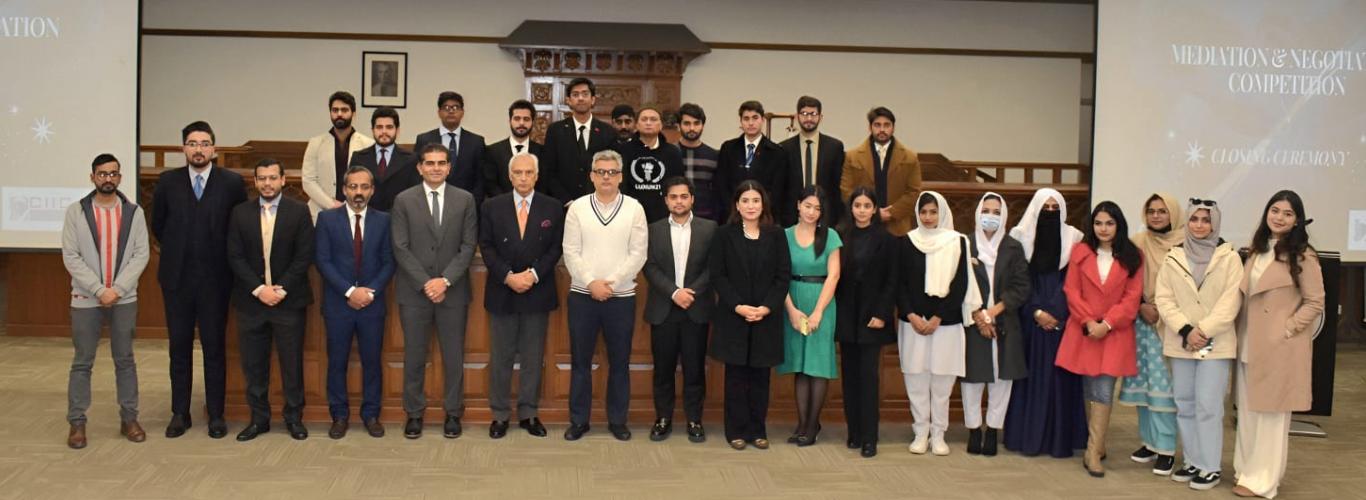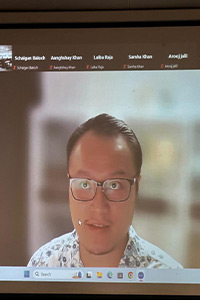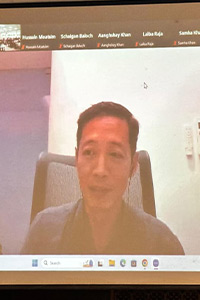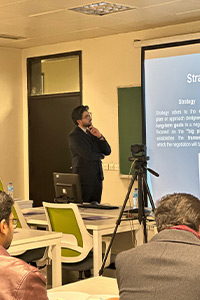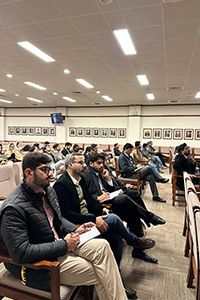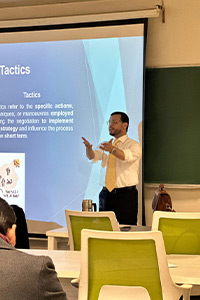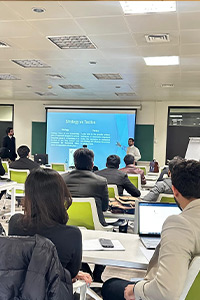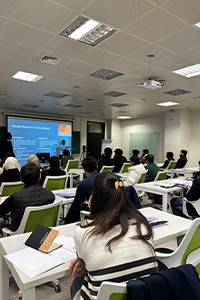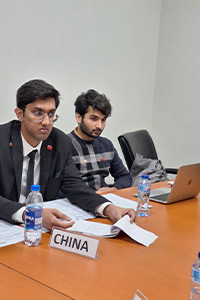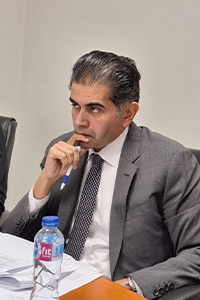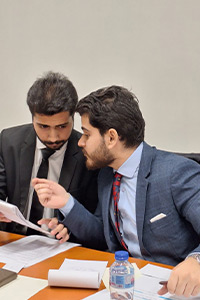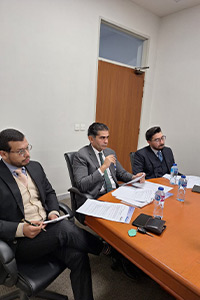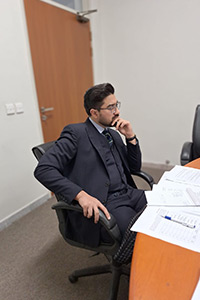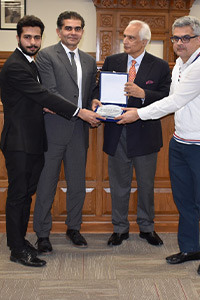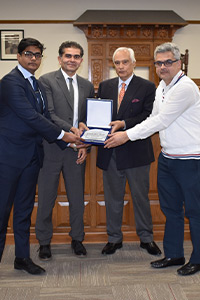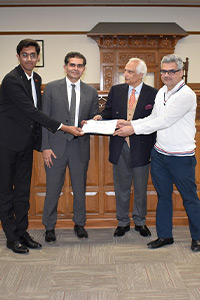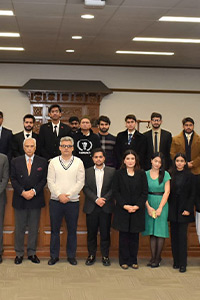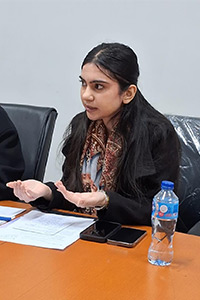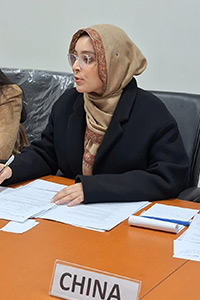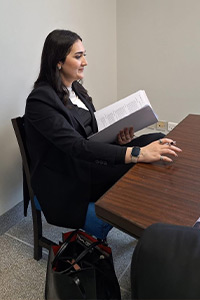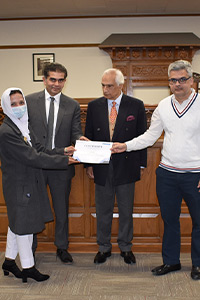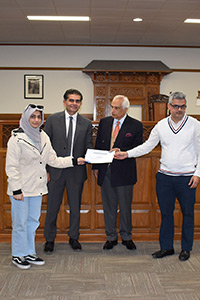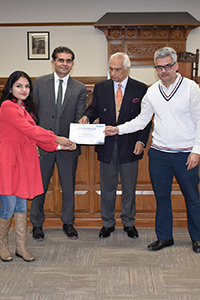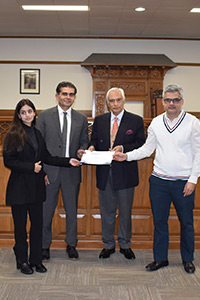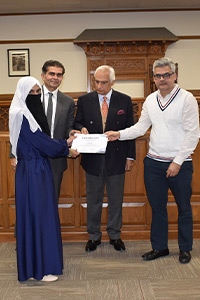CCLS Hosts Inaugural Mediation & Negotiation Competition at LUMS
The Centre for Chinese Legal Studies (CCLS) at SAHSOL hosted its inaugural Mediation and Negotiation Competition this week in collaboration with the Center for International Investment and Commercial Arbitration (CIICA) at the Lahore University of Management Sciences. The event brought together teams from various law and political science schools in Lahore, including Kinnaird College for Women University, Blackstone School of Law and Business, University of Central Punjab, LGS International Degree Programme, Kahuta Law College, Leads Law College, and Lahore School of Law, who participated in negotiations evaluated by experts in mediation and deal-making. The purpose of organizing the event was to foster collaboration, enhance legal education, and prepare students for real-world mediation and negotiation scenarios.
CCLS has taken a pioneering step in advancing mediation and negotiation as essential mechanisms for conflict resolution in Pakistan. Recognizing the critical need to instill an understanding of Alternate Dispute Resolution mechanisms among the country’s young legal talent, the Centre has launched this unprecedented initiative to promote dialogue and collaboration as the cornerstones of effective legal practice. Through this effort, CCLS aims to lead the way in fostering a culture that values negotiation and mediation, equipping future leaders with the skills necessary to address complex disputes and drive positive change within Pakistan’s legal and commercial landscape.
The five-day event commenced with an orientation talk by Mr. Aloysius Goh, Founder and CEO of Sage Mediation and the former CEO of the Singapore International Mediation Centre on the topic “Mediation as a Bridge for Trust and Growth: Insights for Pakistan and China.” This was followed by workshops to equip participants with essential skills. Mr. Lim Tao Shien Marcus, Adjunct Professor at the National University of Singapore and former CEO of the Singapore International Mediation Institute, conducted a workshop on essential mediation techniques. Barrister Daraab Wali Furqan and Advocate Shehzal Burki, both counsels at the CIICA, jointly conducted a foundational negotiation workshop. These sessions provided participants with practical insights into conflict resolution and deal-making strategies ahead of the competition.
Following the workshops, teams competed in preliminary rounds, where each represented opposing parties in a commercial transaction scenario: one as a Pakistani mango exporter and the other as a Chinese distributor. Through skillful negotiations, participants addressed issues such as price increases and packaging delays, with scores awarded for negotiation tactics, professionalism, and overall performance. The evaluators praised the quality of negotiations and provided valuable feedback on improving negotiation tactics for future rounds.
Four teams advanced to Saturday’s semi-finals, where they faced new and increasingly complex challenges. Ultimately, the final round featured teams from LGS International and the UCP. The three-member team from the UCP emerged victorious, claiming the top prize. The final day began with remarks from Mr. Rana Sajjad, Founder and President of the CIICA. The event concluded with a keynote address delivered by former Ambassador Shahid Malik. Drawing from his career, he shared practical insights on the art of negotiation, emphasizing how effective dialogue and conflict resolution have shaped international relations. His remarks inspired young minds to adopt these critical skills in addressing complex disputes. Following his address, awards were distributed to the participating teams by Dr. Sikandar Shah, Director of the CCLS at the Shaikh Ahmad Hassan School of Law, LUMS.
Overall, the week-long competition offered law students a valuable opportunity to experience real-world negotiation dynamics. Participants were challenged to balance their objectives with an understanding of their counterpart's interests, fostering a collaborative approach. This inaugural event has laid a strong foundation for future competitions, with the potential for expansion on a larger scale.

